Manchester Museum to return Aboriginal artefacts in special ceremony
- Published
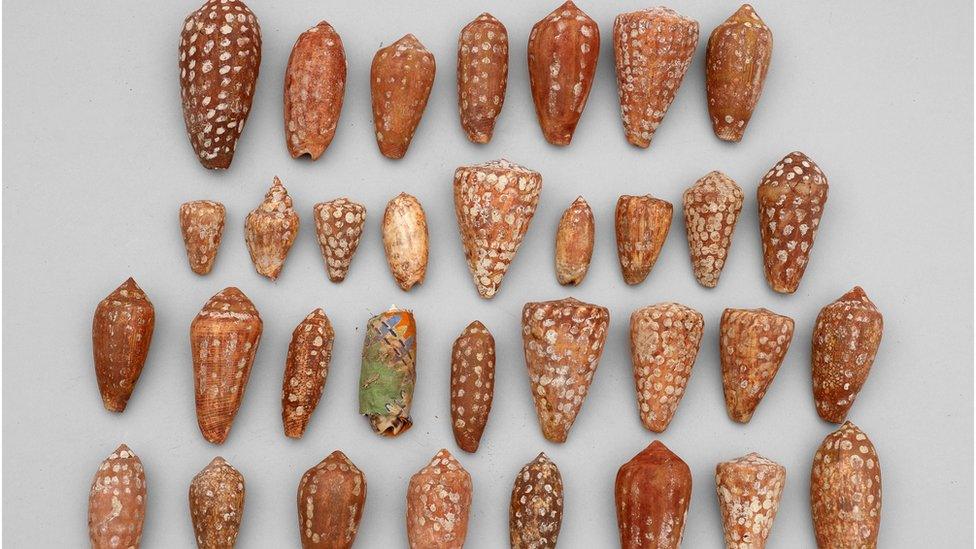
The items have been in the museum's collection for around 100 years
A museum is set to return 174 artefacts to an Aboriginal community in Australia's Northern Territory.
Manchester Museum will hand the items, including spears and shell dolls, over to the Anindilyakwa community in a special ceremony.
Many of the items have been in the museum's collection since the 1920s.
Artefacts were shipped to Britain after Captain James Cook returned to England on the HMB Endeavour in 1771.
The 174 items will be formally returned to Anindilyakwa representatives, who have travelled from Groote Eylandt - an island located about 50km from the north coast of mainland Australia.
Manchester Museum worked collaboratively with the Australian Institute of Aboriginal and Torres Strait Islander Studies (AIATSIS) and the Anindilyakwa Land Council over a three-year period to determine where the collection should reside to best inspire future generations.
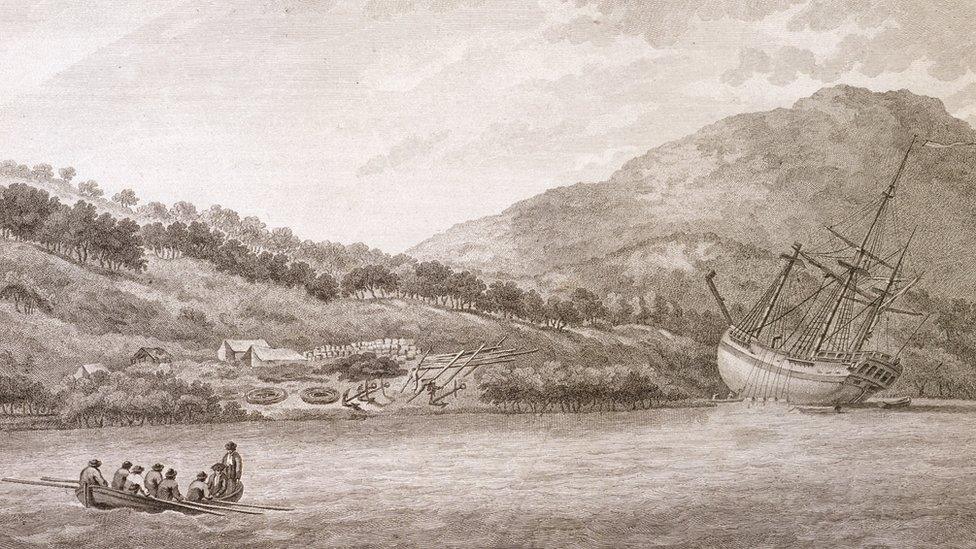
HMB Endeavour sailed for several years around the South Pacific before famously landing in eastern Australia in 1770
Thomas Amagula, deputy chairman of the Anindilyakwa Land Council which represents 14 clans, said: "The repatriation of the Worsley Collection is an important step for us in pursuing one of our core visions: to 'protect, maintain, and promote Anindilyakwa culture'.
"We have only just begun to appreciate how valuable the repatriation of the Worsley Collection will be in the future."
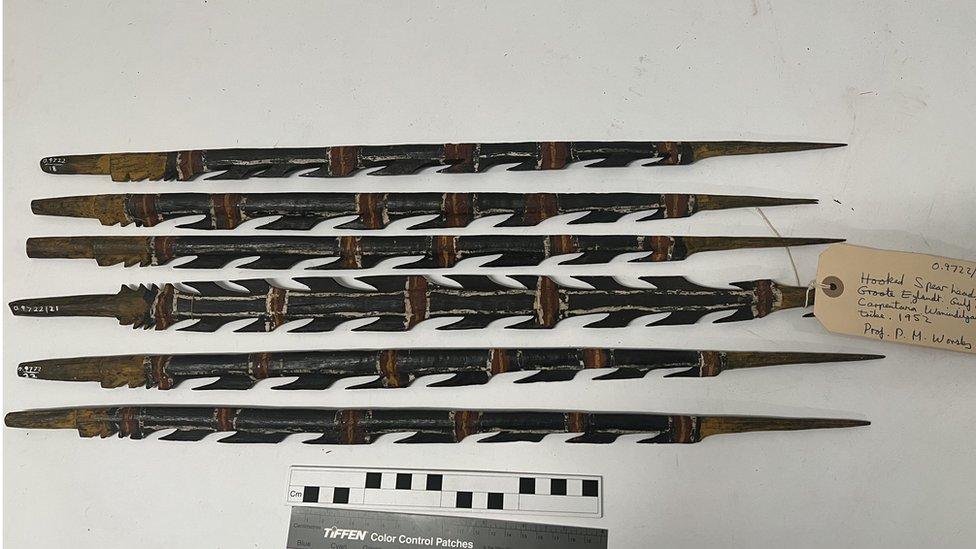
This collection of painted and barbed spears will be among the items returned
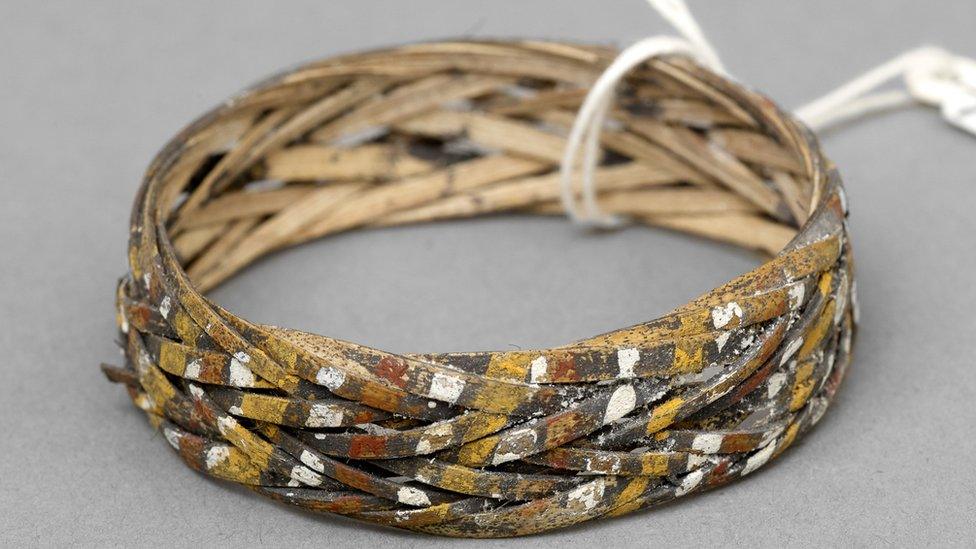
A painted armband will be another item returned to representatives of the Anindilyakwa
Georgina Young, head of exhibitions and collections at Manchester Museum, said the handover felt "momentous" in a different way to any past returns.
"Sitting with Elders and hearing them discuss this collection on their land in their terms has enabled me to understand and care in ways not possible in a store room in Manchester, and brought us to a place of understanding together," she said.
"We are excited by all that this return makes possible in terms of future partnership, but more so by how it supports Anindilyakwa cultural strengthening for years to come."
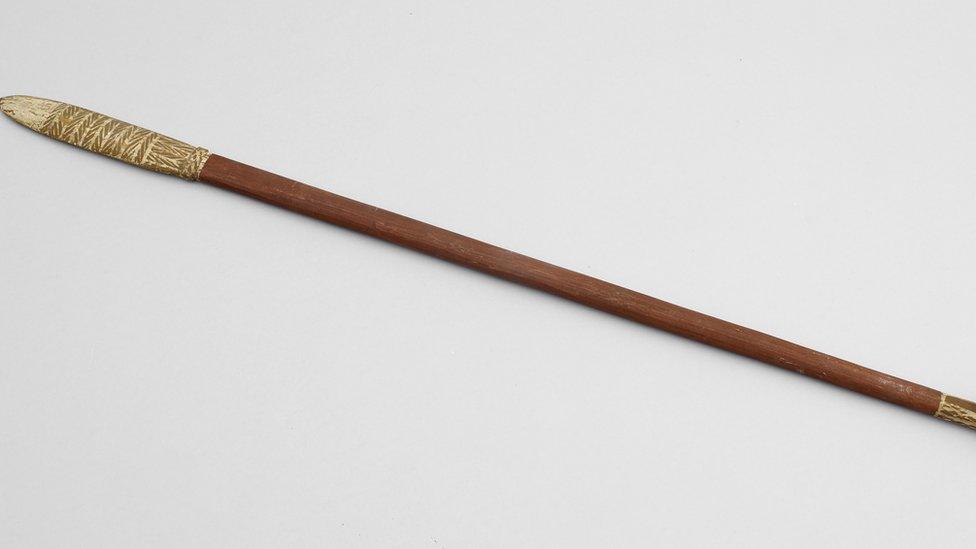
A spear is among the 174 items being returned
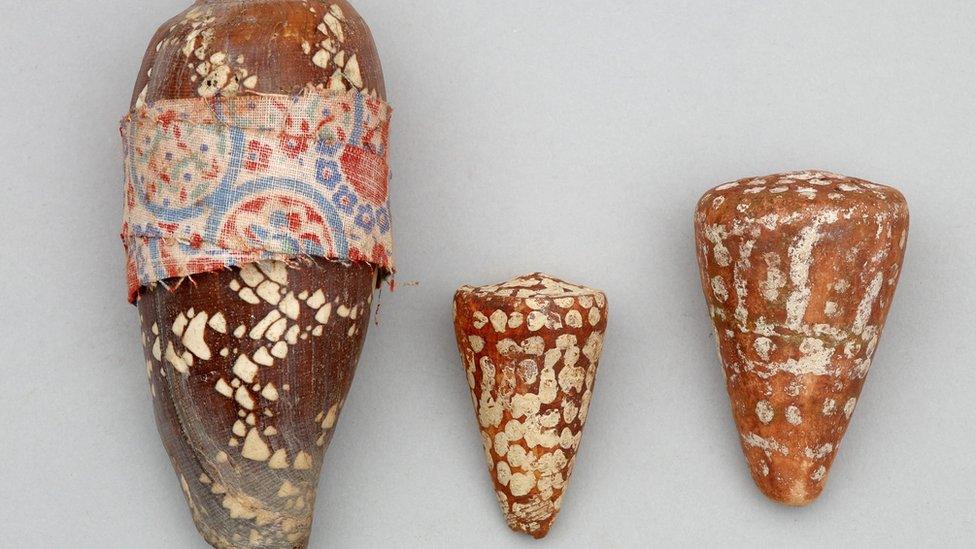
One of the highlights of the collection is a group of dolls made from shells
Manchester Museum has collaborated with AIATSIS over the past five years and previously returned sacred and ceremonial items to Aboriginal communities.
It said the current repatriation goes further, embracing the full scope of the United Nations Declaration on the Rights of Indigenous Peoples by returning material beyond the secret, sacred and ceremonial that is important to the traditions and memories of the Aboriginal community that made them.

Why not follow BBC North West on Facebook, external, Twitter, external and Instagram, external? You can also send story ideas to northwest.newsonline@bbc.co.uk, external
Related topics
- Published21 November 2019
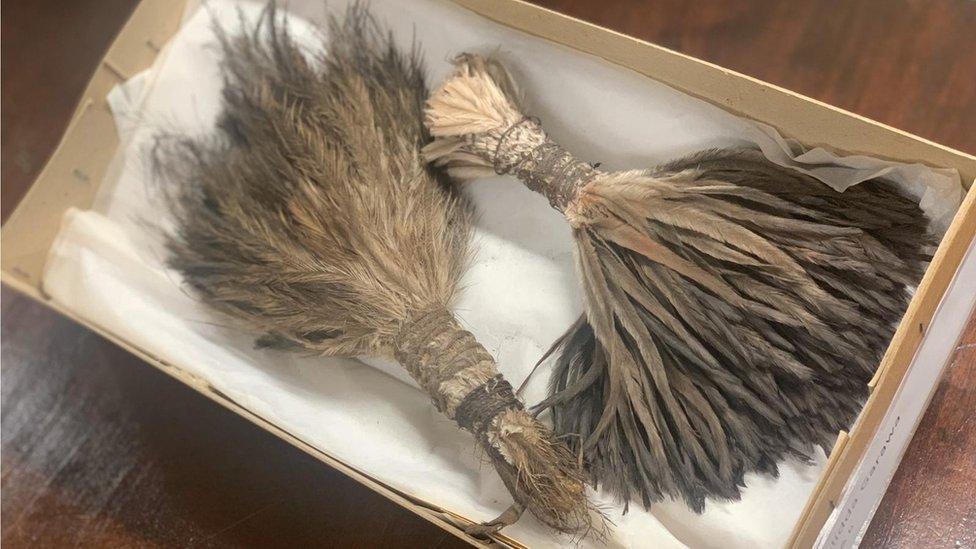
- Published2 March 2023
